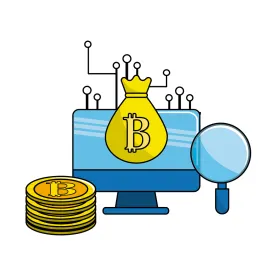On 26 October 2017, France’s Financial Markets Authority, the “Autorité des Marchés Financiers” (“AMF”), published a discussion paper focusing on initial coin offerings (“ICOs”) that highlights the (many) dangers that arise from these unregulated transactions and discusses the regulation options that it currently foresees.[1]
The discussion paper is comprised of a short factual assessment and summary legal analysis (based on French law) of ICOs and the nature of tokens, which the AMF states may not generally be considered to be financial securities, and aims to gather and consolidate stakeholders’ views on the regulation options considered by the AMF. Even if the discussion paper focuses on France, the AMF takes into account the global and borderless nature of ICO operations.
Often described as the “Wild West” of finance, ICOs or “token sales” are an emerging, disintermediated, but unregulated means of raising capital, generally based on cryptocurrencies and the blockchain technology.
Unlike initial public offerings, or “IPOs”, which represent the traditional venture capital model and involve the issuance of financial equity securities on regulated markets in order to raise capital in fiat currency, ICOs typically involve the issuance of digital tokens[2] on a public blockchain-based platform. The price for tokens is determined at the discretion of the ICO-initiating entity, and must be paid in cryptocurrencies (e.g. Bitcoin, Ether) or, more rarely, fiat currency. Most tokens neither offer equity in the entity that initiated the ICO, nor confer corporate rights similar to that of traditional financial securities.
1. A NEED FOR REGULATION?
Because of the ever-increasing number of ICOs and the skyrocketing amounts raised therewith,[3] the heavily-regulated traditional financial sector is beginning to pay attention to ICOs. They may view ICOs as an effective and unregulated way to raise funds, but also see them as unfair competition. Similarly, the AMF and other local regulatory bodies[4], including the U.S. Securities Exchange Commission (the “SEC”)[5], are closely examining and seeking to regulate ICOs in order to protect investors. This interest from the financial sector and governmental authorities shows that ICOs might well be the most viable and efficient way to raise funds.
The AMF discussion paper is clear: the question is not “should ICOs be regulated?” but rather “how should ICOs be regulated?”. On this premise, the AMF describes ICOs as “risky transactions,” emphasizes the risks of investing in transactions that lack “specific regulation,” and calls for regulation.
The AMF cites the lack of investors’ information, the risk of fraud and money laundering, the volatile character of cryptocurrencies, and the risk of capital loss to emphasize the need for regulation of such operations.
More generally, the lack of control of investors and supervising authorities alike over the financials, business strategy, and operations of the ICO-initiating entities is also a strong argument in favor of regulation.
However, ICOs are still a fairly recent practice and involve a variety of different circumstances (e.g.,different tokens and projects, etc.). As a result, it will be difficult for governmental authorities to understand and further regulate ICOs. If stringent regulation is imposed too early or too strictly on this sector, then innovation and further potentially major developments relating to ICOs may be curbed and favor other innovation-driven jurisdictions (e.g.,Singapore).
2. LEGAL ASSESSMENT OF ICOS UNDER FRENCH LAW
The AMF proceeded with a legal assessment of ICOs under currently applicable French law:
On the one hand, the AMF examined the nature of tokens, which could be subject to the French Monetary and Financial Code if they were deemed to be financial securities[6]. The AMF concluded that tokens may not generally be considered financial securities and, consequently, cannot be subject to current French law. The same conclusion applies to the “crowdfunding” under French law, but ICO operations do not involve “crowdfunding” according to the AMF.
On the other hand, the AMF assessed whether ICO-initiating entities could be subject to French law. The AMF found that most ICOs are initiated by entities that are not corporate bodies or entities governed by the French Monetary and Financial Code or subject to financial markets regulation (e.g. Undertakings for Collective Investment in Transferable Securities (“UCITS”), Alternative Investment Funds (“AIFs”)). The AMF does state that some ICO-initiating entities could, under specific conditions, nevertheless qualify as “intermediaries in miscellaneous assets”, but it is not definitive about such assessment.
3. POTENTIAL REGULATION OPTIONS
In light of the above factual and legal assessments, the AMF lays out three possible ways to regulate ICOs in its discussion paper.
3.1 Best Practices
The first option would be a regulatory status quo, i.e. the AMF will not impose any mandatory regulation for ICOs that may not otherwise be regulated by French law and allow the marketplace to self-regulate, but will suggest that ICO-initiating entities follow certain voluntary “best practices.”
The “best practices” could include providing potential investors with a “white paper” similar to existing prospectuses that provides them with standardized information on contemplated ICOs (e.g., identity of the ICO-initiating entity, thorough description of the project, some assessment of financial risk, economic and accounting use of the funds to be collected via the ICO, etc.), a promise to act transparently and use only secure technical resources, record transactions information, and to implement control procedures. Another “best practice” could include narrowing the pool of potential investors based on the level of risk associated with the ICO.
The main issue with this option is the constantly-changing nature of the ICOs’ ecosystem. Currently, there is no established or central “marketplace” and it would be difficult to have all stakeholders establish and abide by self-regulation rules.
The AMF believes that this option might be “insufficient or improperly suited to protect investors” since it would be non-binding. Therefore, it seems uncertain whether this option is a viable one.
3.2 Extend Existing Regulatory Framework To Encompass ICOs
The second option would involve amending the existing (and recently updated) E.U. framework pertaining to information prospectuses for public offerings of financial securities by listed companies[7] to enable the AMF to review and approve ICOs’ procedures just as it does for traditional offerings of securities. In addition, the AMF could be granted the power to adjust review procedures.
The main issue with this option is that imposing the formal and heavy procedures designed for listed companies on entities that normally do not have the financial capability, knowledge, or procedures to create prospectuses will not attract ICO-initiating entities to Europe. In addition, ICOs attract tech-savvy investors who are interested in the underlying project and may not, unlike more traditional investors, be used to long and formal prospectuses.
3.3 Ad Hoc Regulation
The third option would be the design and the implementation of an ad hoc regulation, tailored to “multi-faceted” ICOs or, at least, to the greatest possible number of ICOs. The AMF identifies two options here: either (A) a mandatory authorization regime that would apply to any ICO available to the public within the French territory and would require that the ICO-initiating entity seek prior authorization from the AMF or face “banishment” of the ICO from France, or (B) an optional authorization regime similar to an “AMF-labelled ICO” that would allow ICO-initiating entities to choose to willingly submit to the authorization process or provide a mandatory disclaimer stating that the ICO is not “AMF-approved”.
This option seems to be the AMF’s favorite, as it would, according to ICO initiators cited by the AMF, create a “quality label” that would attract ICOs to France.
The main issue with this option would be that ICOs may be presented by entities that do not have any legal identity under French law, such as projects led by decentralized communities on the blockchain, which could render any petition for approval before the AMF difficult or impossible.
In any event, any decision to impose regulation must be carefully thought out and designed by E.U. supervisory authorities in order to preserve and/or enhance the attractiveness of France and Europe to ICOs.
In this respect, the AMF discussion paper is a first and open step toward a more balanced and insight-driven regulatory framework that should receive praise from the sector’s stakeholders. Stakeholders should not pass this unique opportunity to raise their voices.
Comments on the discussion paper must be sent to the AMF by 22 December 2017 at the following address: directiondelacommunication@amf-france.org.
Notes:
[2] A token is a digital unit of account that can be traded on digital platforms, mainly using blockchain technology.
[3] During 2017 only, five out of the ten most high-profile ICOs in the world took place in the EU, for a total of nearly EUR 600 millions. Among those operations, Tezos raised EUR 232.millions in fourteen days in July 2017.
[4] The European Securities and Markets Authority, UK and Germany finance supervisory authorities.
[5] The SEC considers that tokens may be securities under the U.S. Securities Exchange Act of 1934 (the “Securities Act”)- https://www.sec.gov/oiea/investor-alerts-and-bulletins/ib_coinofferings. On July 25, 2017, the SEC issued a Report of Investigation under Section 21(a) of the Securities Act describing an SEC investigation of The DAO, a virtual organization, and its use of distributed ledger or blockchain technology to facilitate the offer and sale of DAO Tokens to raise capital. The SEC applied existing U.S. federal securities laws to this new paradigm and determined that DAO Tokens were securities.
[6] Article L.211-1 of the French Monetary and Financial Code.
[7] Regulation (EU) 2017/1129 of 14 June 2017




 />i
/>i

